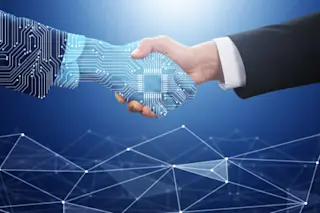Chances are, your hard drive is packed with important relics---the first email you sent your spouse, the photographs of your grandma's 80th birthday, the documents you read for your senior thesis. The data you've accrued plays the same role as albums full of pictures, letters, and sentimental objects might have for earlier generations: it constructs a narrative about your progress through life. Or at least it could, if there were a way to have it automatically organized. This personal data-mining is what what Facebook's Timeline feature aims to do, but the Timeline is curated manually by the user, includes only files you've uploaded to Facebook, and is public, for all your Facebook friends to see (and maybe there are some events in your life you'd like to remember without the whole world peering over your shoulder). So we were interested to read about Lifebrowser, a product being developed in Microsoft ...
Building a Personal Timeline Like Facebook's, in the Privacy of Your Own Computer
Explore how personal data-mining can transform your hard drive into a meaningful timeline of memorable life events.
More on Discover
Stay Curious
SubscribeTo The Magazine
Save up to 40% off the cover price when you subscribe to Discover magazine.
Subscribe












